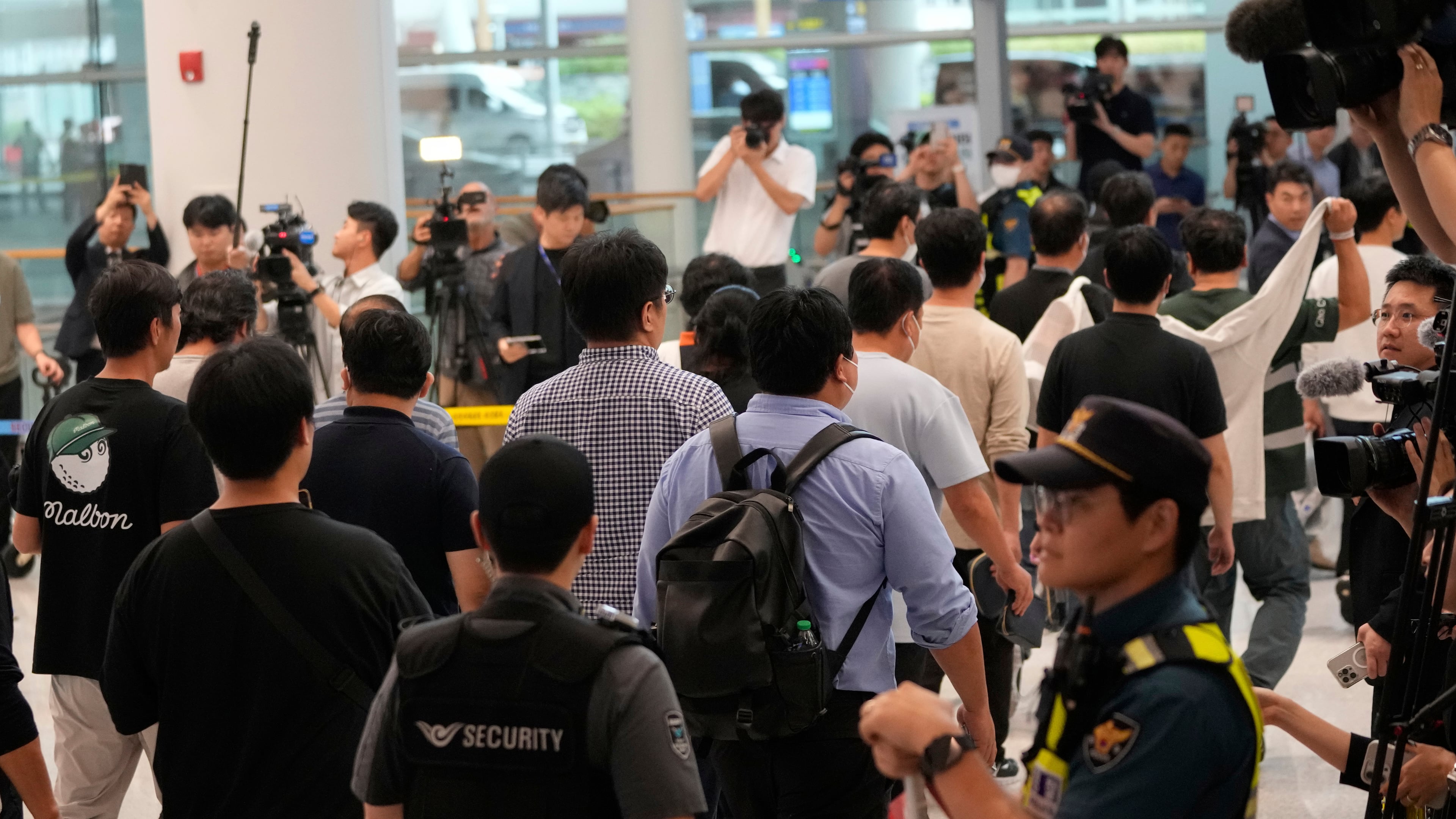South Korean workers released after days of detention in Georgia return home

INCHEON, South Korea (AP) — More than 300 South Korean workers detained in an immigration raid in the United States last week were brought back home on a charter plane on Friday.
They were among about 475 people detained during the Sept. 4 immigration raid at a battery factory under construction on the campus of Hyundai’s sprawling auto plant west of Savannah. Their roundup and the U.S. release of video showing some Korean workers shackled with chains around their hands, ankles and waists have caused public outrage and a sense of betrayal in South Korea, a key U.S. ally.
TV footage showed the charter plane, a Boeing 747-8i from Korean Air, landing in Incheon International Airport, just west of Seoul, on Friday afternoon. The footage later showed workers, some wearing masks, passing an arrival hall, with senior officials including presidential chief of staff Kang Hoon-sik clapping hands. One hugged Kang.
Hundreds of journalists gathered at the airport to cover their arrival. One protester unfurled a huge banner with a photo of U.S. President Donald Trump and a message criticizing U.S. immigration crackdowns before security officials persuaded him to stop. The South Korean Foreign Ministry asked media to blur the workers’ faces in video and photos at the airport, citing requests by the workers who worried about their privacy.
The plane carried 330 people who were detained in the Georgia raid — 316 of them are South Koreans and the rest Chinese, Japanese and Indonesian workers. They had been held at an immigration detention center in Folkston, 285 miles (460 kilometers) southeast of Atlanta.
South Korea said Sunday it had reached an agreement with the U.S. for the Korean workers’ releases.
The South Korean government had pushed to bring them back home on Thursday, but said the plan was shelved due to a reason involving the U.S. side. South Korea’s Foreign Ministry later said President Donald Trump had halted the departure process to hear from South Korea on whether the Koreans should be allowed to stay to continue their work and help train U.S. workers or should be sent back to South Korea.
“President Trump had directed that the (detainees) should be allowed to return home freely and those who didn’t want to go didn’t have to,” South Korean President Lee Jae Myung told a news conference Thursday. “We were told that, because of that instruction, the process was paused and the administrative procedures were changed accordingly.”
Lee said that one South Korean national who has relatives in the U.S. eventually chose to stay in the U.S.
The battery plant, a joint venture between Hyundai and LG Energy Solution, is one of more than 20 major industrial sites that South Korean companies are currently building in the United States. They include other battery factories in Georgia and several other states, a semiconductor plant in Texas, and a shipbuilding project in Philadelphia, a sector Trump has frequently highlighted in relation to South Korea.
U.S. authorities said some of the detained Korean workers had illegally crossed the U.S. border, while others entered legally but had expired visas or entered on visa waivers that prohibited them from working. But South Korean officials and experts have accused the U.S. of failing to act on its long-running request to improve a visa system to accommodate skilled Korean workers as the U.S. wants South Korea to expand U.S. industrial investments.
In reality, South Korean companies have been mostly relying on short-term visitor visas or Electronic System for Travel Authorization to send workers who are needed to launch manufacturing sites and handle other setup tasks, a practice that had been largely tolerated for years.
__
Hyung-jin Kim reported from Seoul.
